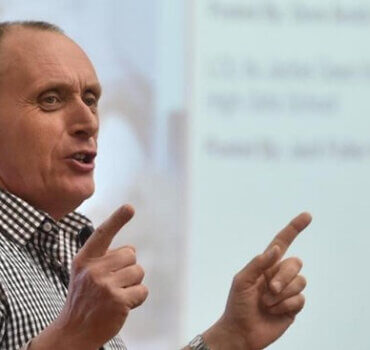
John Parsons
Cyber safety and risk assessment consultant John Parsons, whose services are in demand around New Zealand, was in Cambridge recently to help keep children safe online.
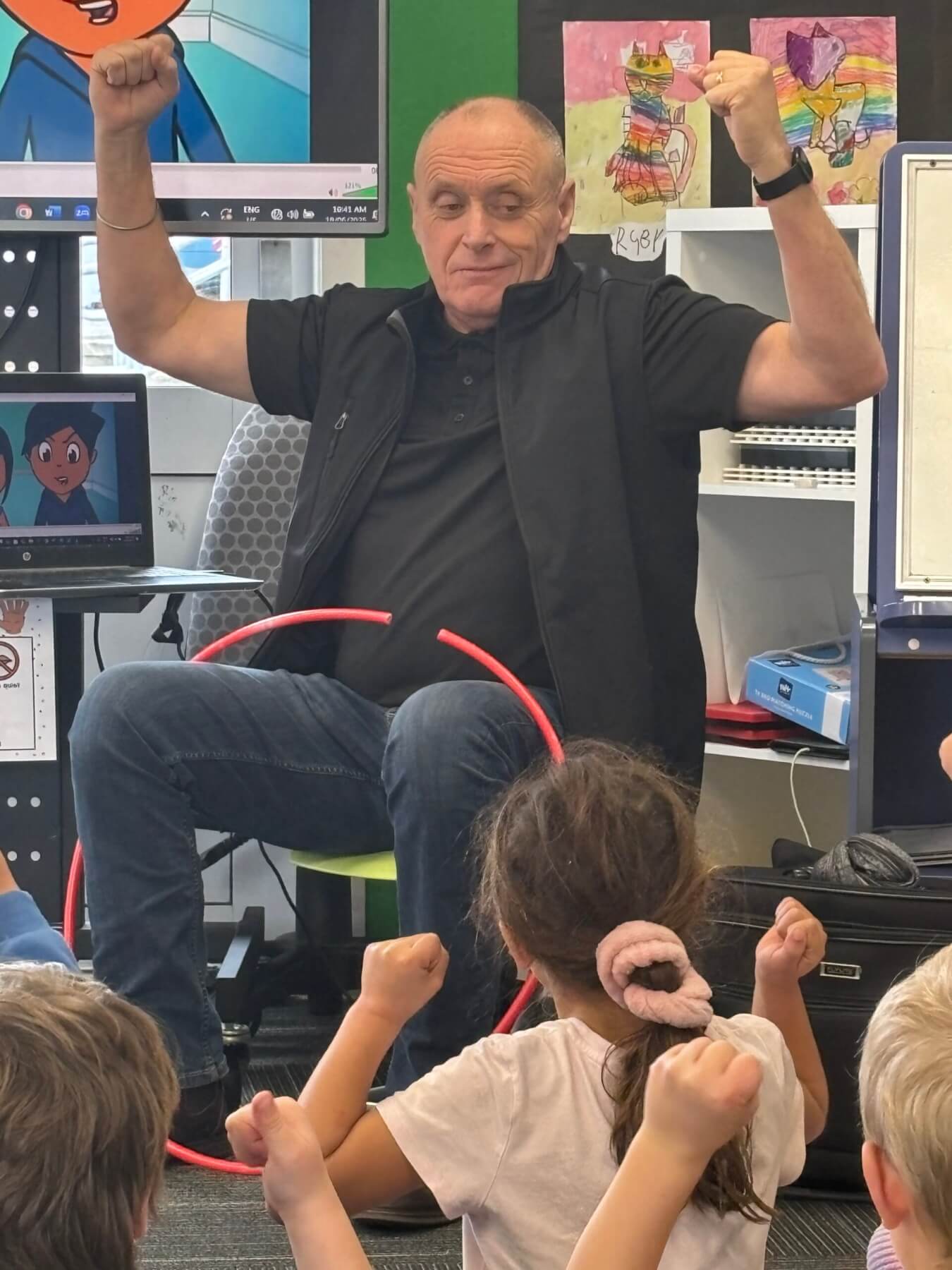
Cyber safety expert John Parsons works with Karāpiro School students during a visit to Cambridge. Photo: Supplied
Twelve schools joined forces to bring Parsons to town from May 26-29 and June 16-19.
“Schools right through New Zealand are seeing increasing challenges at keeping children safe online – it’s getting more complex for them,” Goodwood School principal David Graham said.
“We really want to support parents and the children themselves to make good choices around technology.”
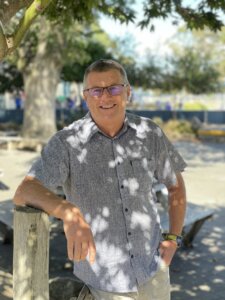
David Graham
Parsons worked directly with children and teachers in classrooms and held seven public information evenings across his two visits.
One major issue he is working to highlight, Graham said, was children lying about their age to access age-restricted content.
“This exposes them to danger from online predators, but it also directs advertising at them beyond their year level,” Graham said.
“It might be age-restricted material that gets advertised, or ideas around body image that are unhelpful and unhealthy.”
Another problem was the separation between parents and children occurring in the virtual world.
“John made a really good point…we take such good care of our children’s brains – when we put them on a bike they have a helmet, when they jump in a car they have a seatbelt – but when you put them online their brains are at incredible risk of seeing material or connecting with people that’s harmful to their brain, and parents sometimes have no idea of what’s happening in their online life,” Graham said.
He said children in every school were accessing R18 games such as Grand Theft Auto.
“In that game, you can use a car as a weapon to run into people, you can drown people by holding them underwater – so all of those really horrible adult themes…if you’re an eight or nine-year-old with a developing brain, seeing those images, it can have long-lasting effects on their wellbeing.”
Algorithms were clever, targeting children with products such as pimple cream if they changed their profile picture – which could be a signal they were unhappy about the way they looked.
“When children are bombarded with images of what success looks like, or what the correct body image looks like, it has long-lasting emotional stress on the developing brain.”
Graham said Parsons recommended children stay off social media until they were at least 16.
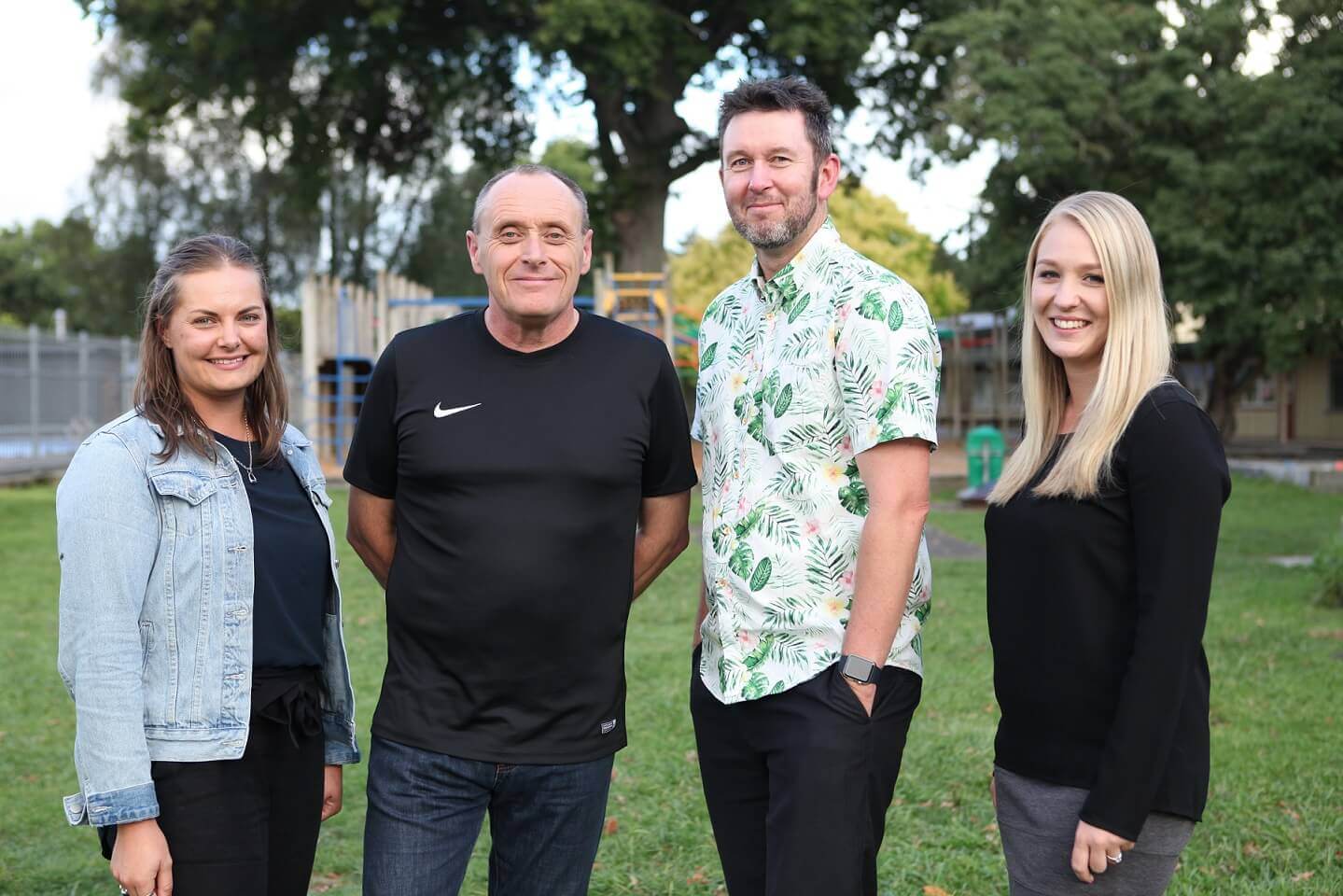
Cyber safety expert John-Parsons on a 2018 visit to Cambridge, second from left, with Leamington School principal Mike Malcolm and teachers Bex Paulsen left and Sarah Kirk.
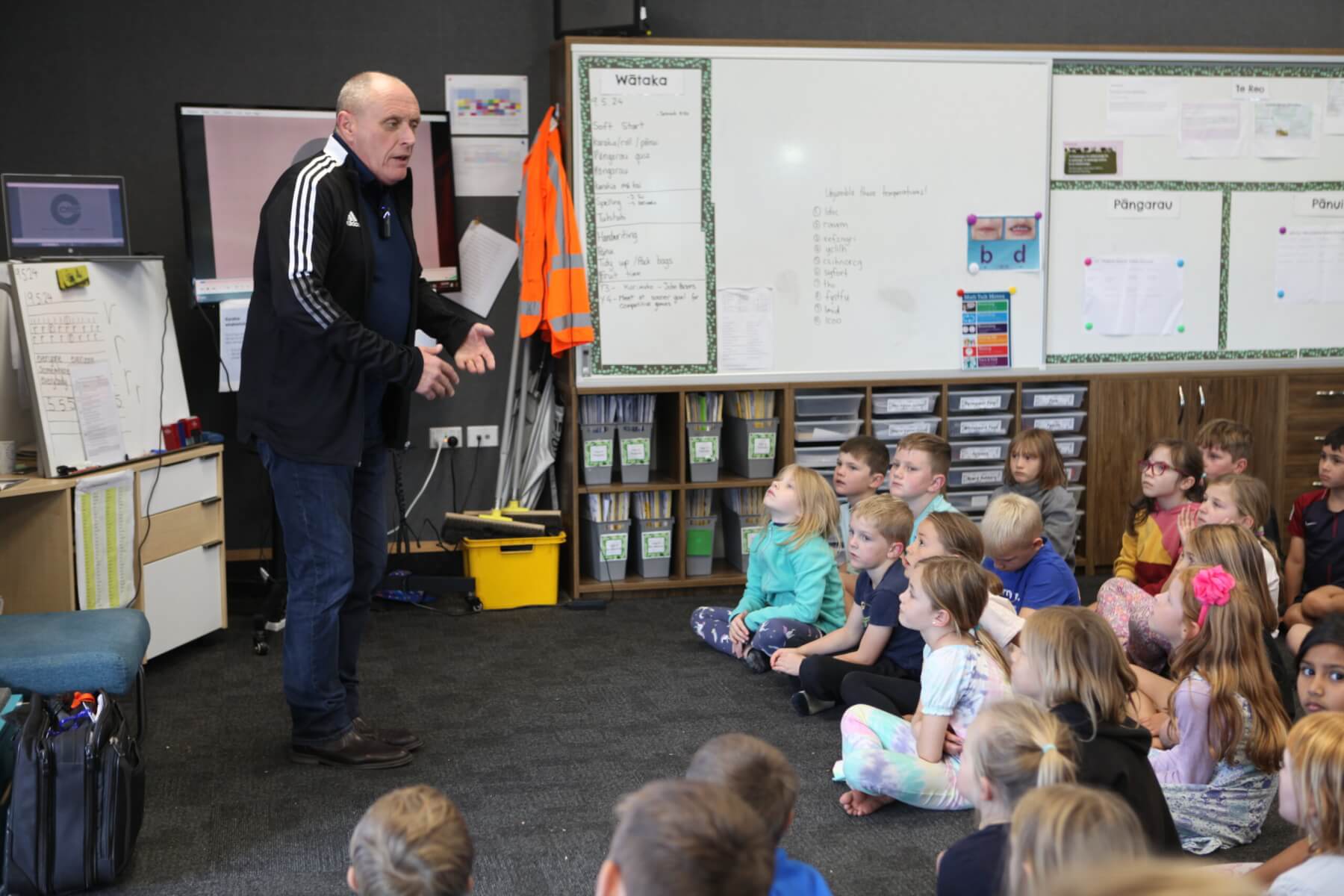
Online cyber safety and risk assessment consultant John Parsons teaches year 3 students and their teachers about cyber safety at Goodwood School. Photo: Steph Bell-Jenkins.








